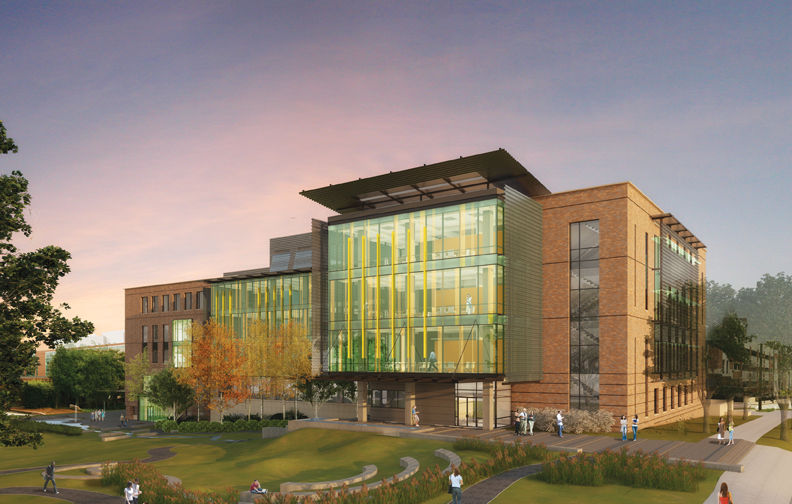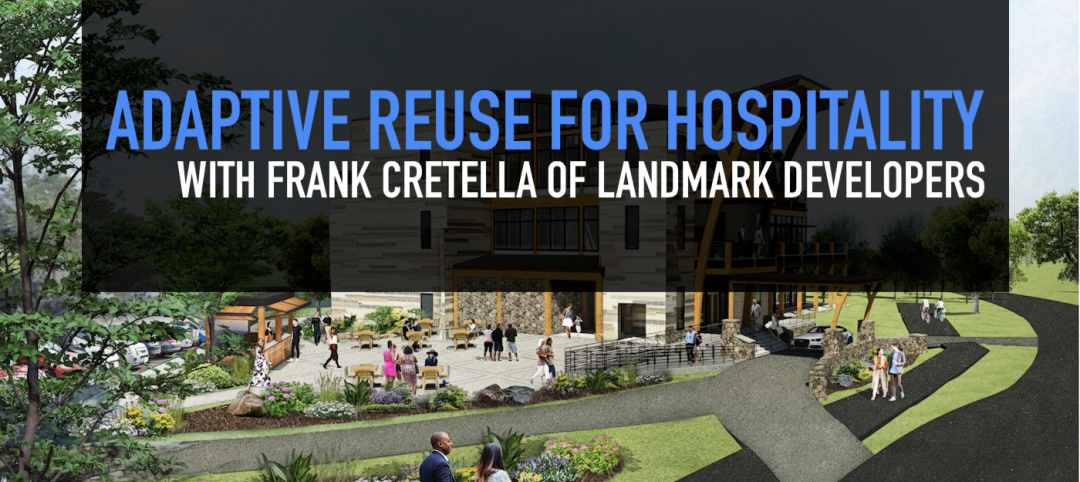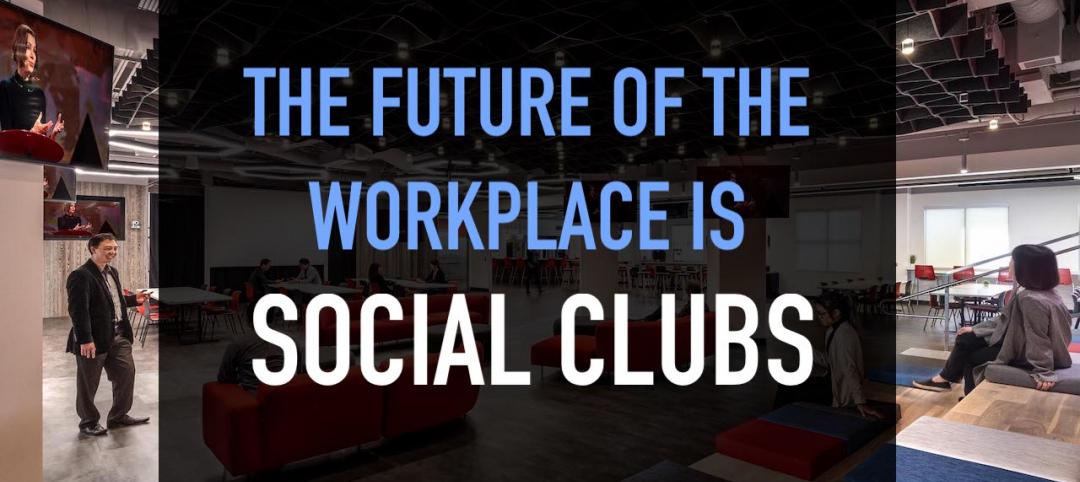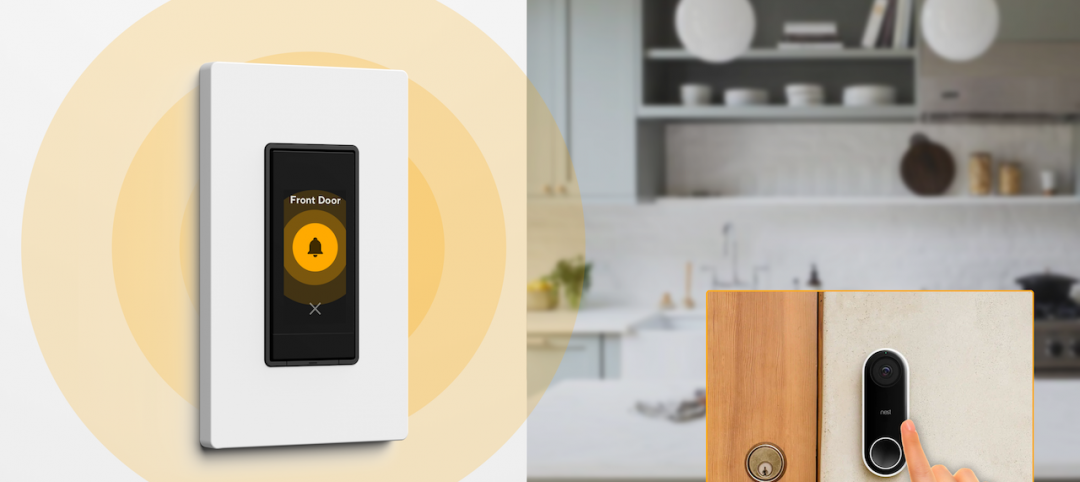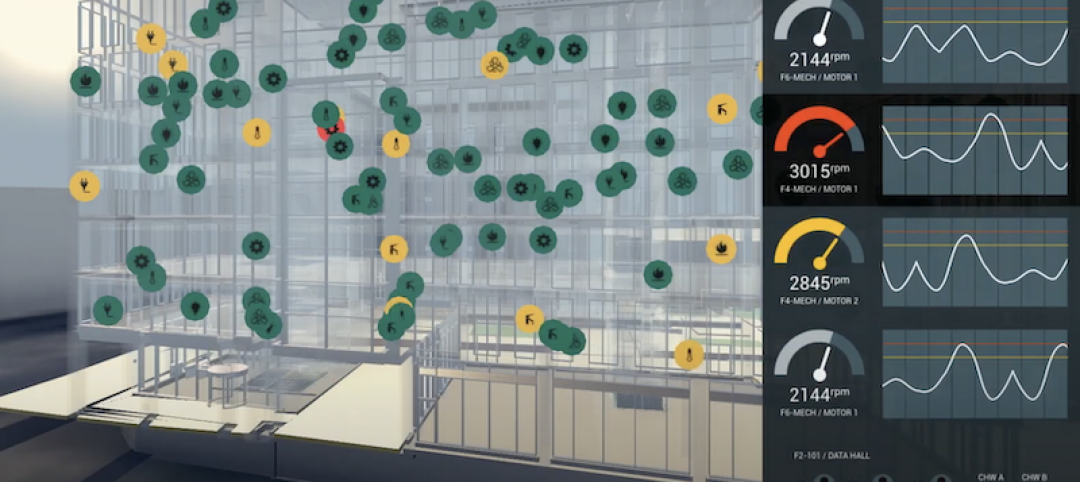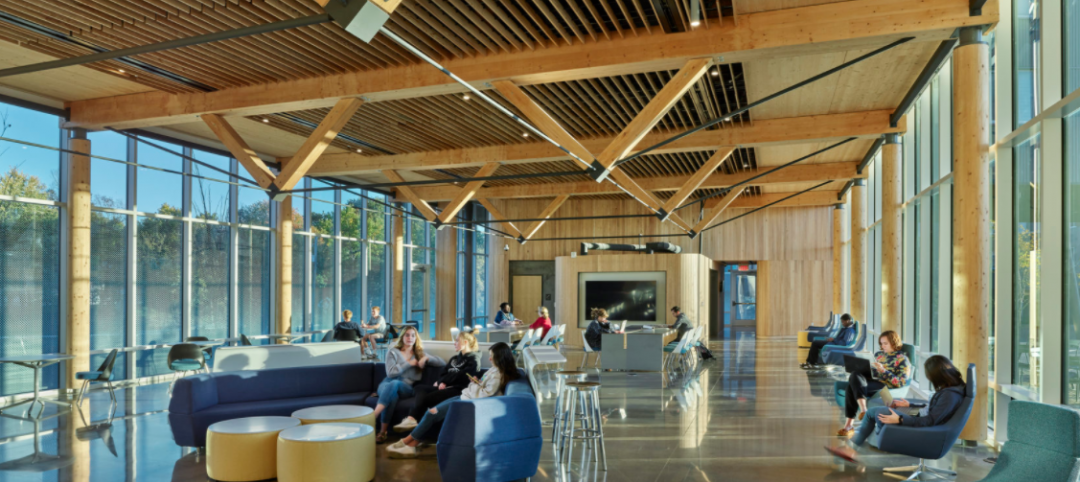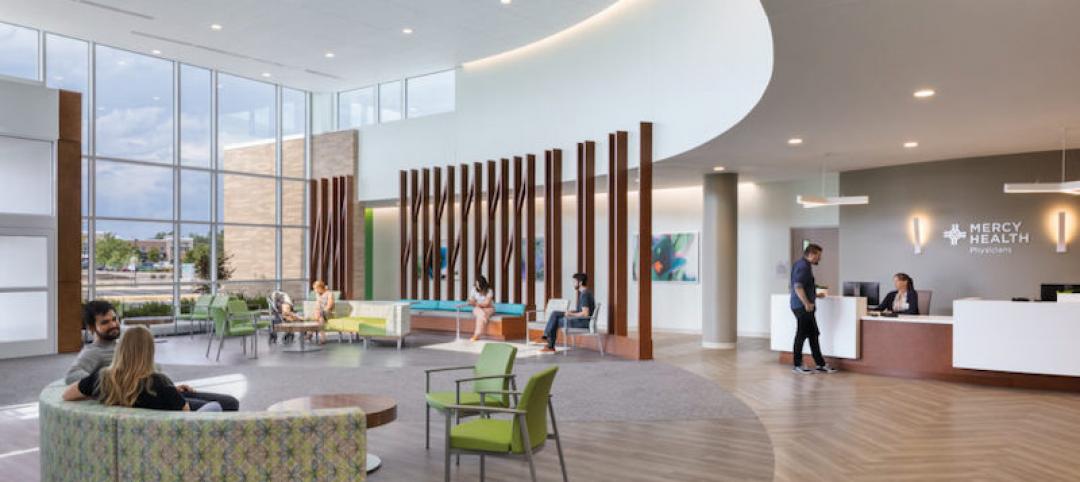Architecture firms are pursuing transparency and disclosure en route to achieving high sustainability ratings for their clients’ buildings.
“Transparency and healthy materials is one of the hottest topics in the green building industry,” says SERA Architecture’s Lisa Petterson, AIA, LC, LEED AP BD+C. “We are seeing more and more emphasis on actual rather than predicted performance.”
With partners Lucid and Enmetric, SERA is studying plug load use in its own Portland, Ore., office, to see how to save energy. A previous research project on water savings in actual projects led to regulatory changes in Oregon.
VOA Associates is developing post-occupancy surveys to collect building performance data. “This will help us understand human interaction on specific buildings and building types, to inform future projects and help us create better, healthier built environments,” says VOA Sustainability Leader Susan Heinking, AIA, NCARB, LEED AP O+M.
To get a better handle on real performance numbers, HDR Architecture has developed two metrics: the Sustainable Return on Investment (SROI), which computes a dollar-based measure of project goals in reducing energy, water, and waste; and the Sustainability-adjusted Life Cycle Cost Analysis (SLCCA), which evaluates the full cost of design decisions so that benchmarks can be developed for sustainable design decisions.
As a firm that does work all over the world, Gensler has to be attuned to many different climates; hence its use of design performance analysis software at the beginning of virtually all projects, says Kirsten Ritchie, PE, LEED AP O+M, the firm’s Sustainable Design Director. “We develop early conceptual designs and use building simulation software to measure design impacts on energy, carbon, water, and daylight,” she says. “This enables us to make design decisions that ‘tune’ our building performance.”
Firms are finding, however, that energy modeling, while usually helpful, is not an end in itself. “It narrows the universe of options really quickly and helps us make the right moves as early [in design] as possible,” says Heather Holdridge, Assoc. AIA, EIT, LEED AP BD+C, Sustainability Coordinator with Lake|Flato Architects. “It helps us to set some clear goals early in the process.”
At Cannon Design, project teams have a proprietary design tool at their fingertips—it’s called Material LIFE—that enables them to compare construction systems and materials from cradle to gate. According to Sustainability Director Rand Ekman, AIA, LEED Fellow, this process allows designers to choose materials that not only reduce global energy use but also have a positive life cycle impact.
MINING FOR PRECIOUS GOLD—AND MORE
More and more architecture firms are pushing higher and higher on the sustainability ladder.
For example, PGAL has executed numerous high-LEED projects in recent years: the net-zero-ready Bachelor Enlisted Quarters at Marine Corps Air Ground Combat Center, Twentynine Palms, Calif., awaiting Platinum certification; Gold-certified Innovation Village Apartments at Florida Atlantic University; the $42 million U.S. Federal Courthouse, Fort Pierce, Fla., awaiting Gold certification; and two transport projects seeking LEED Gold—the Consolidated Rental Car Facility at Boston’s Logan International Airport and the Regional Intermodal Transit Center at Bob Hope Airport, Burbank, Calif.
Globetrotting firm RTKL recently earned LEED Gold for the Mirdif City Centre, a 230,000-sf mall with parking for 7,000 cars, in Dubai. Another LEED project, the 135,000-sf Mall of Egypt, in Cairo, was also completed for client Majid Al Futtaim Properties. Closer to home, RTKL gained LEED Gold for the 21,000-sf White Oak Wonders, a child care center on the campus of the Food and Drug Administration headquarters in White Oak, Md.
WD Partners, a leader in green retail design, emphasizes the ongoing investment value of sustainability to clients like grocers Whole Foods, Price Chopper, and Fresh & Easy. The firm collaborated with UTC Power on the installation of a 400-kW fuel cell at a Stop & Shop in East Torrington, Conn., that provides 95% of the store’s electrical needs; the store’s total utility bills have been trimmed in half in the last two years.
WD Partners has also contracted with the U.S. Energy Department’s Pacific Northwest National Lab to develop the next-generation Home Depot retail outlet—one that will cut energy use 50%.
Design firms are also widening their green service capabilities. Atkins has launched a retro-commissioning business, based in Fort Myers, Fla., to capture some of the potential $1.8 billion that Pike Research projects will propel the retro-Cx market by 2014.
Firms are also stretching their goals. Net-zero energy is no longer the impossible dream, as the Health Professions & Student Services Building at North Shore Community College, Danvers, Mass., demonstrates
The three-story, LEED Gold building uses a 50-well geothermal system, chilled beams, and a tight building envelope to reduce energy consumption, and roof-mounted PVs to generate the power needed to make the building net-zero for energy. DiMella Shaffer Associates (designer) and Walsh Brothers (CM) headed the team.
On the green horizon: PNC Bank Headquarters, under design by Gensler and Buro Happold (SE, MEP, modeling consultant). The client for this $400 million, 800,000-sf tower, PNC’s Gary Saulson, has publicly defined his “modest” demands—to make it the “greenest high-rise building in the world,” with the lowest predicted energy use intensity. We’ll find out how well the Building Team did to meet these goals in about three years. +
Related Stories
Hotel Facilities | Jun 18, 2021
Adaptive reuse for hospitality, with Frank Cretella of Landmark Developers
In an exclusive interview for HorizonTV, Landmark Developers' President Frank Cretella talks about the firm's adaptive reuse projects for the hospitality sector. Cretella outlines his company's keys to success in hospitality development, including finding unique properties and creating memorable spaces.
Wood | Jun 10, 2021
Three AEC firms launch a mass timber product for quicker school construction
TimberQuest brand seeks to avoid overinvestment in production that has plagued other CLT providers.
Office Buildings | Jun 10, 2021
The future of the workplace is social clubs
Office design experts from NELSON Worldwide propose a new concept for the workplace, one that resembles the social clubs of the past.
Multifamily Housing | Jun 3, 2021
Student Housing Trends 2021-2022
In this exclusive video interview for HorizonTV, Fred Pierce, CEO of Pierce Education Properties, developer and manager of off-campus student residences, chats with Rob Cassidy, Editor, MULTIFAMILY Design + Construction about student housing during the pandemic and what to expect for on-campus and off-campus housing in Fall 2021 and into 2022.
Building Technology | Jun 1, 2021
Orro Announces Google Nest Integration for the Orro Switch
Orro, creators of the professional-grade top-of-the-line Orro Smart Living System, today announced the integration of Nest products to Orro. As a certified partner in Google’s Device Access program, this latest Orro integration allows homeowners to have seamless control and access to Nest thermostats and doorbells from any Orro Switch throughout the home – creating a single unified smart home system with advanced, intelligent ambient control.
Digital Twin | May 24, 2021
Digital twin’s value propositions for the built environment, explained
Ernst & Young’s white paper makes its cases for the technology’s myriad benefits.
Senior Living Design | May 19, 2021
Senior living design: Post-COVID trends and innovations
Two senior living design experts discuss the latest trends and innovations in the senior living building sector.
Multifamily Housing | May 18, 2021
Multifamily housing sector sees near record proposal activity in early 2021
The multifamily sector led all housing submarkets, and was third among all 58 submarkets tracked by PSMJ in the first quarter of 2021.
Wood | May 14, 2021
What's next for mass timber design?
An architect who has worked on some of the nation's largest and most significant mass timber construction projects shares his thoughts on the latest design trends and innovations in mass timber.
Healthcare Facilities | Apr 30, 2021
Registration and waiting: Weak points and an enduring strength
Changing how patients register and wait for appointments will enhance the healthcare industry’s ability to respond to crises.


